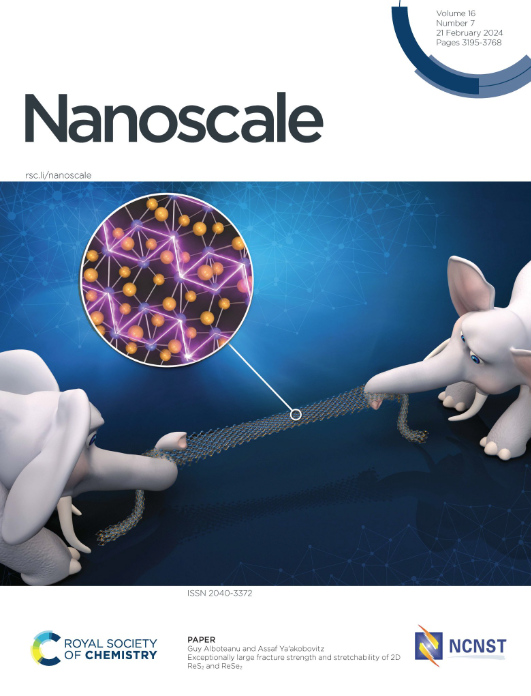Sustainable Catalysts in a Short Time: Harnessing Bacteria for Swift Palladium Nanoparticle Production
IF 5.8
3区 材料科学
Q1 CHEMISTRY, MULTIDISCIPLINARY
引用次数: 0
Abstract
Adapting biological systems for nanoparticle synthesis opens an orthogonal Green direction in nanoscience by reducing the reliance on harsh chemicals and energy-intensive procedures. This study addresses the challenge of efficient catalyst preparation for organic synthesis, focusing on the rapid formation of palladium (Pd) nanoparticles using bacterial cells as a renewable and eco-friendly support. The preparation of catalytically active nanoparticles on the bacterium Paracoccus yeei represents a more suitable approach to increase the reaction efficiency due to its resistance to metal salts. We introduce an efficient method that significantly reduces the preparation time of Pd nanoparticles on Paracoccus yeei VKM B-3302 bacteria to only 7 min, greatly accelerating the process compared with traditional methods. Our findings reveal the major role of live bacterial cells in the formation and stabilization of Pd nanoparticles, which exhibit high catalytic activity in the Mizoroki–Heck reaction. This method not only ensures high yields of the desired product but also offers a greener and more sustainable alternative to conventional catalytic processes. The rapid preparation and high efficiency of this biohybrid catalyst opens new perspectives for the application of biosupported nanoparticles in organic synthesis and a transformative sustainable pathway for chemical production processes.求助全文
约1分钟内获得全文
求助全文
来源期刊

Nanoscale
CHEMISTRY, MULTIDISCIPLINARY-NANOSCIENCE & NANOTECHNOLOGY
CiteScore
12.10
自引率
3.00%
发文量
1628
审稿时长
1.6 months
期刊介绍:
Nanoscale is a high-impact international journal, publishing high-quality research across nanoscience and nanotechnology. Nanoscale publishes a full mix of research articles on experimental and theoretical work, including reviews, communications, and full papers.Highly interdisciplinary, this journal appeals to scientists, researchers and professionals interested in nanoscience and nanotechnology, quantum materials and quantum technology, including the areas of physics, chemistry, biology, medicine, materials, energy/environment, information technology, detection science, healthcare and drug discovery, and electronics.
 求助内容:
求助内容: 应助结果提醒方式:
应助结果提醒方式:


